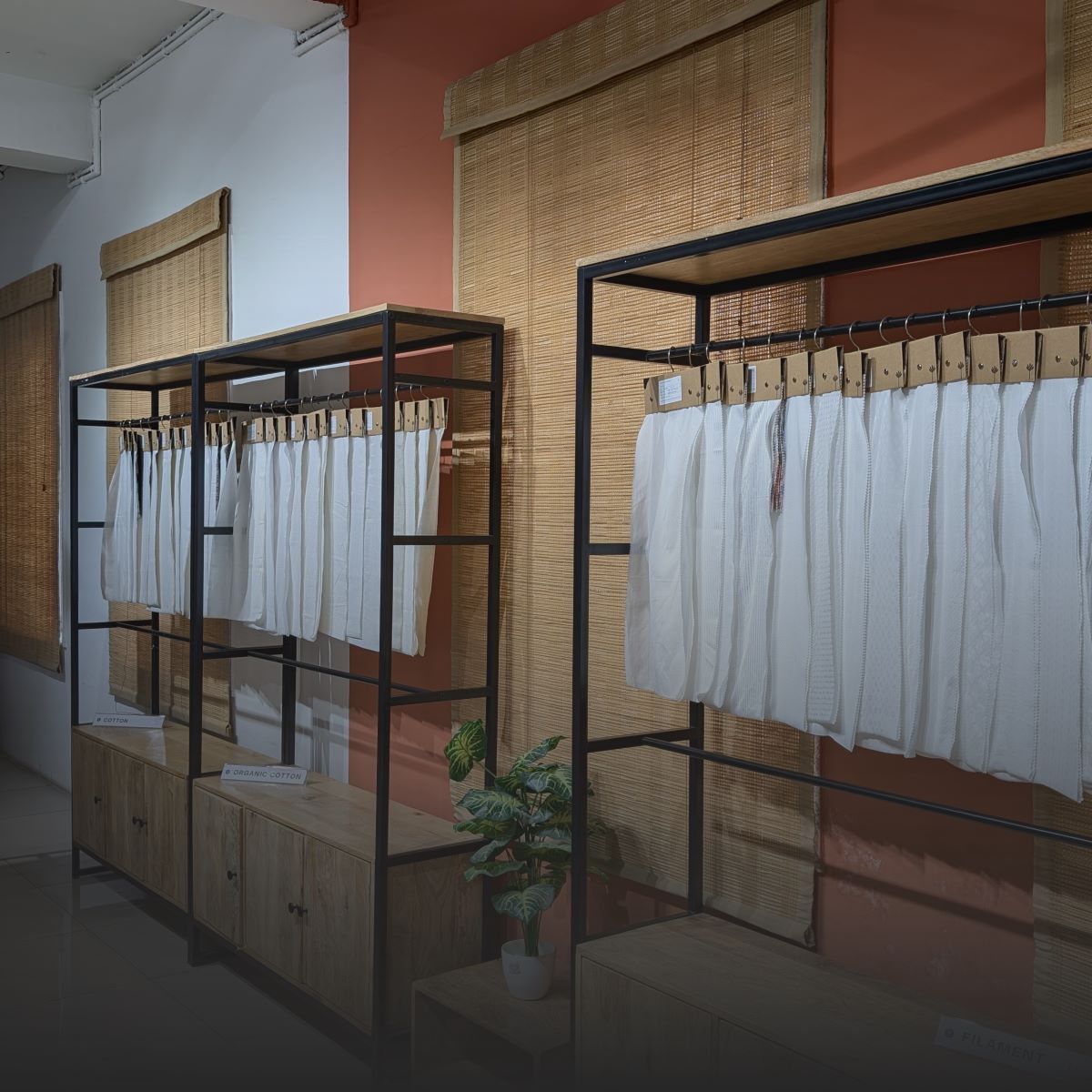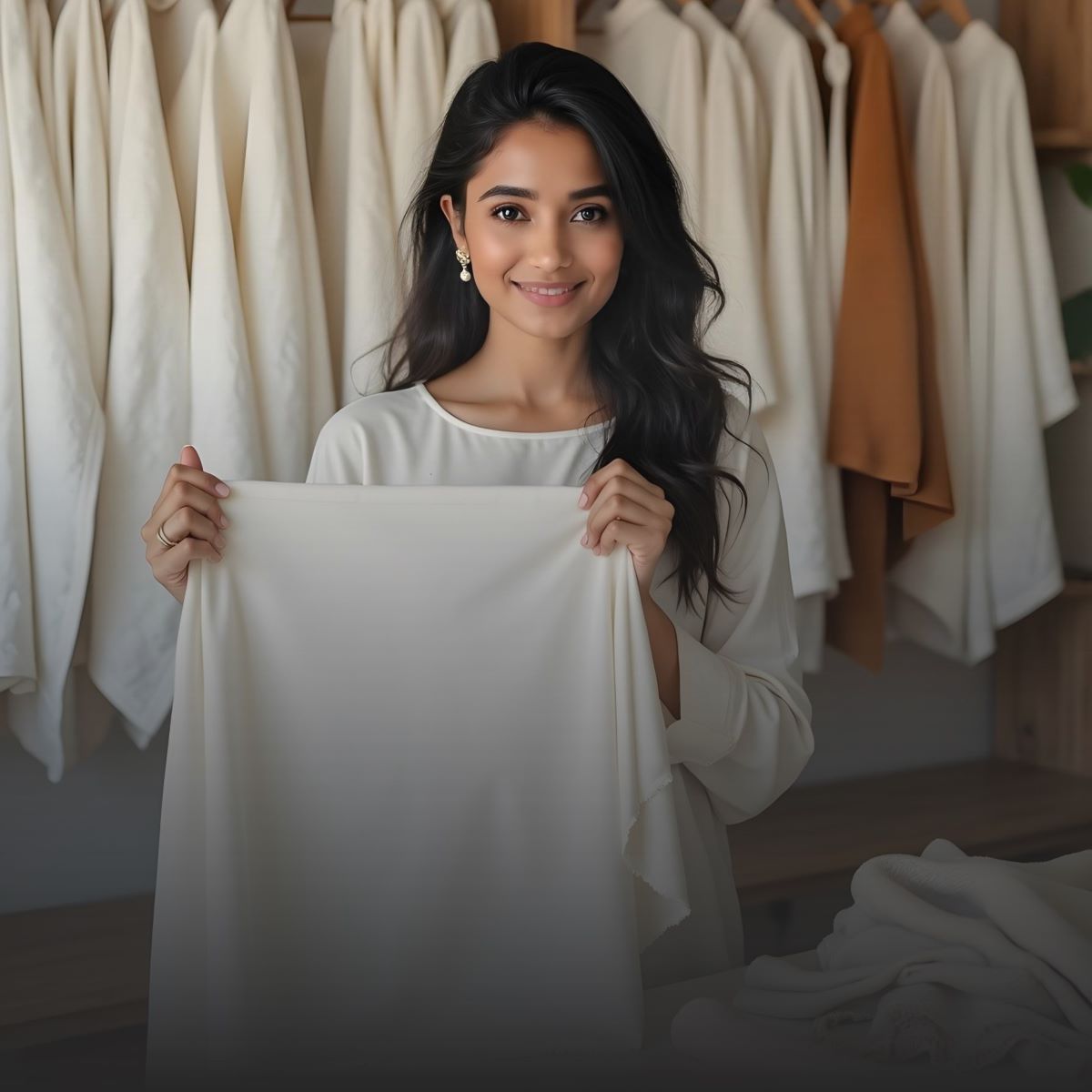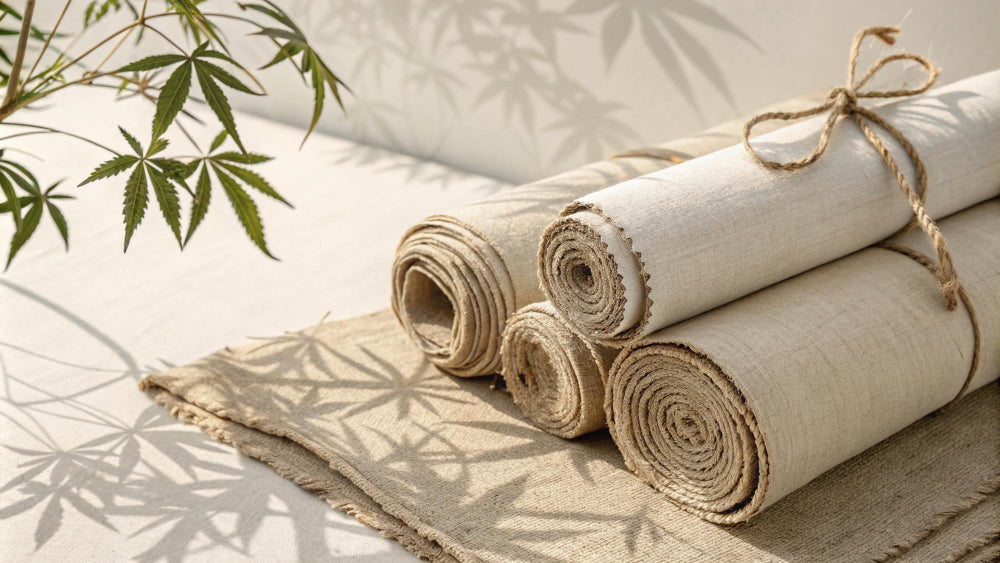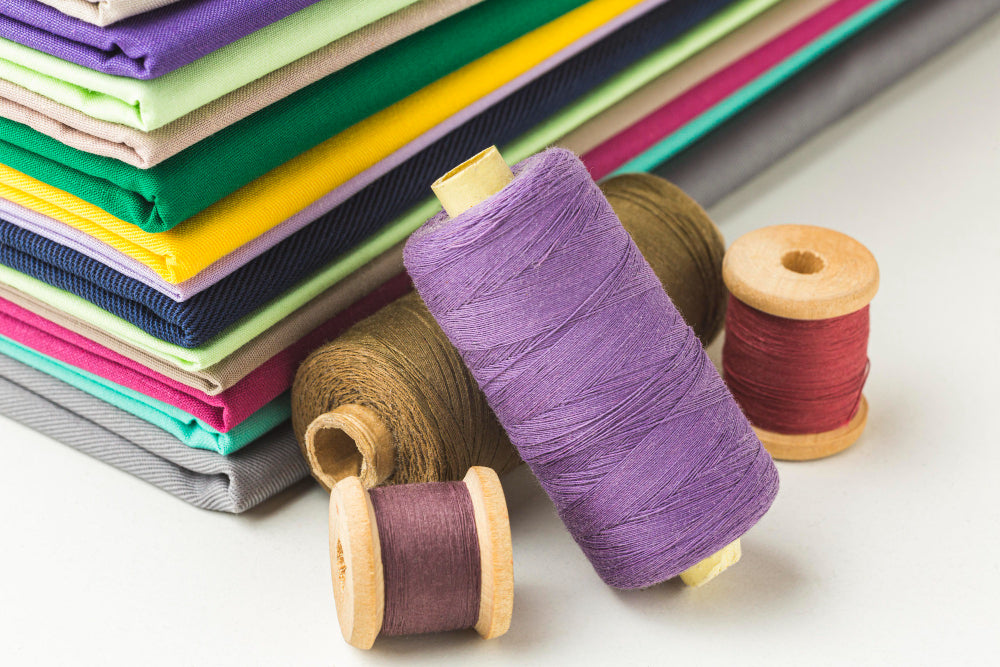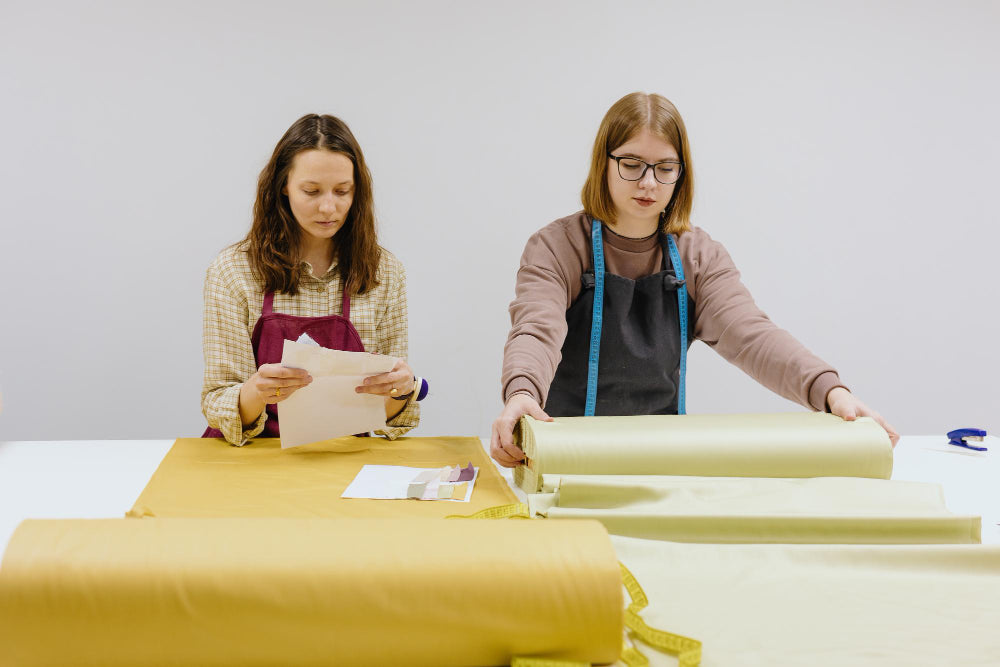Sourcing fabric in bulk is not only a pricing decision. It shapes the quality of your products, the reliability of your supply chain and the values your business represents. As expectations change across industries, sustainable fabric is becoming a priority for those who want to meet buyer demand and reduce long-term risk.
This change is happening across the entire industry, not just among luxury or small brands. The way products are made and sold is evolving. Buyers now look more carefully at fabric options, especially for large orders.
Common reasons behind the growing demand for sustainable wholesale fabric include:
- Increased awareness of environmental damage linked to textile production
- Retail requirements that demand certified or traceable fabric sources
- Rising customer interest in where and how products are made
- Supply chain audits that assess fabric origin and processing standards
Choosing sustainable fabric is no longer about standing out. It is about staying ready. Businesses that depend on regular fabric sourcing need suppliers who meet sustainability standards without slowing down production or raising unpredictable costs.
The next section explains what makes a wholesale fabric supplier truly sustainable so you can start your sourcing process with a clear direction.
Also Read: What Are Some Sources for Certified Sustainable Fabrics?
How to identify dependable suppliers of organic cotton in bulk?

Organic cotton is widely used, but supplier reliability varies. Bulk sourcing requires more than a basic claim of sustainability. It depends on verified standards, consistent quality and transparent operations.
Begin with GOTS certification. It confirms that the cotton meets strict organic and processing standards. Suppliers with valid certifications are easier to vet and track.
Key checks to review include:
- GOTS certificate from an accredited body
- Swatches from multiple dye lots
- Details of finishing methods
- Clear production timelines
- Stock availability records
These points help you evaluate quality, consistency and delivery readiness. A reliable supplier supports both short-term fulfillment and long-term planning. Transparency and sample-backed assurance make a strong foundation for building trust.
With a verified source for cotton in place, the next step is understanding how to select sustainable linen with equal attention to quality and supply.
What to check when selecting wholesale linen fabric for eco-conscious sourcing?

Linen Fabric holds a strong reputation for being low-impact, but that does not mean every option is truly sustainable. Wholesale suppliers may offer a wide range of qualities, blends and treatments—some of which compromise the fabric’s eco-friendly value.
Focus on origin and composition first. Flax grown in Europe, especially under certifications such as Masters of Linen, often meets higher sustainability standards. Avoid blends unless all components are clearly listed and verified.
Use the following points to guide your supplier review:
- Source of flax (European-grown preferred)
- Certification from recognized flax or linen bodies
- Absence of synthetic or chemical softening
- Weight, weave and finish that match end-use
- Consistency across swatches
A dependable supplier will clarify fabric structure, finishing methods and availability. This helps ensure your product quality stays high while meeting sustainability expectations.
Once linen options are in place, it becomes easier to evaluate specialty fabrics like bamboo and TENCEL™ with equal care.
Which wholesale sources offer genuine bamboo and TENCEL™ fabrics?

Bamboo and TENCEL™ are valued for their softness and biodegradability, yet they are often misrepresented. The way these fibers are processed makes a significant difference in their environmental impact. Not all options sold as “sustainable” meet responsible sourcing criteria.
Start by checking the fiber source. TENCEL™ is a branded lyocell fiber produced by Lenzing under closed-loop manufacturing. Only authorized sellers offer genuine TENCEL™ backed by documentation. Bamboo is more complex. Mechanically processed bamboo is rare, while most versions are chemically treated and may not qualify as eco-conscious.
When reviewing suppliers, confirm the following:
- Official Lenzing partnership or authorization
- Clear identification of fiber type and processing method
- Certification or documentation for the full supply chain
- Availability of swatches for texture and finish testing
- Matching support across bulk quantities
These checks help prevent misleading claims and allow your production to reflect both comfort and accountability.
Also Read: Top Indian Fabric Suppliers for Sustainable Fashion Brands
Where to find sustainable Cupro and Bemberg suppliers for wholesale buying?

Cupro and Bemberg are regenerated cellulose fibers known for their smooth texture and drape. Often used in linings and luxury apparel, these fabrics offer a refined finish with lower environmental impact—when sourced responsibly.
Not all suppliers provide clear information about fiber origin or processing standards. Since both fabrics are specialty items, transparency matters more than volume.
Focus on these points when evaluating wholesale sources:
- Fiber origin from Japan or certified European mills
- Supplier confirmation of Cupro or Bemberg labeling
- Swatches showing color consistency and weave stability
- Clarity on dye lot matching and repeat availability
- Documentation for traceability and compliance
A supplier offering real visibility into production, fiber sourcing and batch control is more likely to meet quality and sustainability standards. Once you identify those aligned with these practices, your sourcing strategy becomes easier to maintain at scale.
The next step is choosing between local and international suppliers based on practical sourcing needs.
Should you choose local or international wholesale suppliers for sustainable fabric?
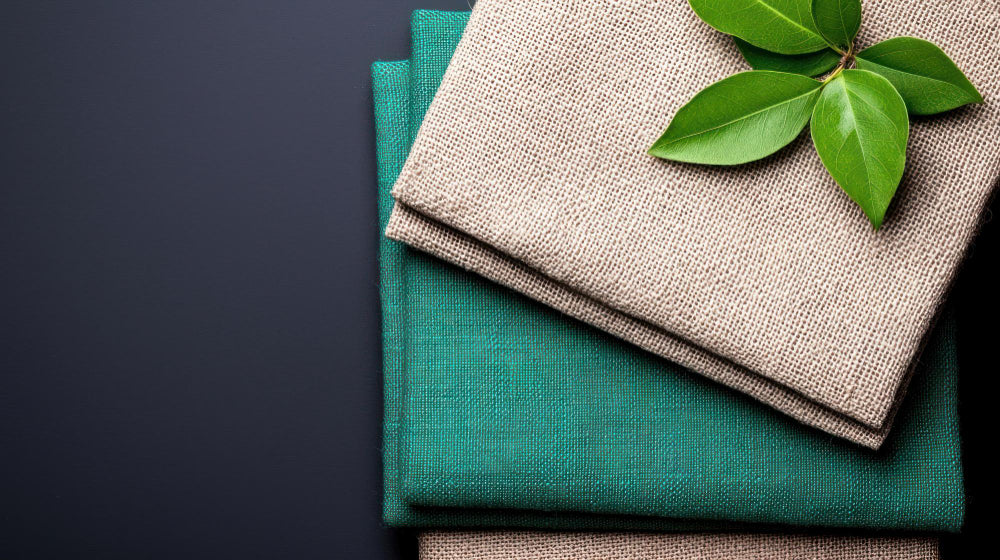
Choosing between local and international suppliers involves more than shipping distance. Both options can support sustainable sourcing, depending on how well they align with your business goals, order volumes and delivery schedules.
Local suppliers offer shorter lead times and easier communication. They may also provide quicker sampling and lower transport-related emissions. However, they might carry a limited range of eco-certified fabrics or fewer specialty blends.
International suppliers often have wider inventories, access to advanced fabric technologies and stronger mill partnerships. Still, longer delivery timelines and customs handling must be considered during planning.
To decide effectively, evaluate:
- Range of certified sustainable fabrics available
- Reliability of communication and fulfillment
- Lead time and logistics complexity
- Minimum order quantity and reorder flexibility
- Compatibility with your production cycles
The right choice balances quality, availability and operational efficiency. With that in mind, the next step is learning how to verify sustainability claims before placing any bulk order.
How to verify sustainability claims before placing a bulk order?

Sustainability labels and product descriptions often sound convincing, but not all claims hold up under review. Before placing a large order, take steps to confirm that the fabric and the supplier meet the standards your business requires.
Start by requesting detailed documentation. Certificates should come from recognized bodies and match the specific fabric batch. Review test reports, processing details and fiber origin records. These offer a clearer view of the supplier’s operations.
Use the checklist below to guide your review:
- Certification documents linked to the current fabric stock
- Lab test results for shrinkage, colorfastness or chemical use
- Clear records of fiber source and processing location
- Contact information for audit or verification follow-up
- Swatches to evaluate texture, weight and finish
Verifying claims helps avoid delays, quality issues or brand risks later. Once this is done, you can confidently begin shortlisting the suppliers who meet your sourcing goals.
Where to find and shortlist verified sustainable fabric suppliers?

Finding reliable suppliers starts with knowing where to look. Many claim to offer sustainable fabric, but only a few provide proof, consistency and support for bulk orders. A focused approach helps narrow your list to those who meet both quality and sustainability standards.
Begin with established platforms that allow supplier filtering based on certifications or material types. Some trade directories focus entirely on eco-certified mills. Industry expos and sourcing fairs also bring together vetted suppliers from around the world.
Use the following sources to build your shortlist:
- B2B sourcing platforms with sustainability filters
- GOTS and OEKO-TEX directories for certified mills
- International textile trade fairs and sourcing expos
- Supplier lists from buyer groups or sustainability networks
- Direct mill contacts shared through verified channels
Once you have a list of potential suppliers, ask them for fabric samples and related documents. This helps you compare options clearly and choose the right one faster.
Also Read: Top Platforms to Source Sustainable Fabrics for your Fashion Brand
What to confirm before finalizing a wholesale deal for sustainable fabrics?

Once you have narrowed down your list of suppliers, the final step is to confirm the terms of your partnership. Even with certifications and sample checks, the details of the agreement determine how smoothly the sourcing process will run.
Before placing your first bulk order, take time to clarify the following:
- Written agreement covering fabric type, quantity and pricing
- Delivery schedule with fixed lead times and buffer periods
- Terms for returns or replacements in case of defects
- Communication process for updates and approvals
- Ongoing availability for future orders or scale-up plans
These elements protect your production from delays, mismatches or miscommunication. A clear agreement also supports repeat business and builds a working relationship based on transparency and shared expectations.
Conclusion

Buying sustainable fabric in bulk helps ensure good quality, steady supply and clear planning. Begin by checking fabric certifications, asking for samples, reviewing supplier information and confirming all terms before placing your order.
Choose suppliers who offer transparency, consistent fabric quality and reliable timelines. A written agreement helps avoid confusion later.
This approach protects your business and helps meet changing buyer expectations. When facts back fabric choices, your products are stronger and your sourcing process stays ready.
Also Read: What Companies Offer Sustainable Fabric Sourcing for Fashion Brands?
FAQs
Q1. How do I know if a wholesale fabric supplier is truly sustainable?
Check for recognized certifications like GOTS or OEKO-TEX. Ask for sample swatches, production details and supporting documents. A dependable supplier shares this information clearly.
Q2. What makes GOTS certification important for organic cotton sourcing?
GOTS covers both farming and processing standards. It confirms that the cotton is grown without harmful chemicals and handled under controlled conditions. This helps ensure both fabric quality and traceability.
Q3. Are bamboo fabrics always sustainable?
Not always. Most bamboo fabric is made through chemical processing. For a lower-impact option, choose mechanically processed bamboo or verified lyocell blends like TENCEL™ from approved sources.
Q4. Why should I request swatches before placing a bulk order?
Swatches show the real texture, weight and finish of the fabric. They help confirm that the product meets your requirements before you commit to a large order.
Q5. What is the benefit of sourcing locally instead of internationally?
Local sourcing can reduce lead times and simplify logistics. It also allows quicker communication and easier quality checks. However, product range may be more limited compared to global suppliers.
Q6. Can I rely only on a supplier’s website claims?
No. Always ask for certificates, supply records and production details. Verified information is key to avoiding delays or quality issues later.
We also happen to be a magnet for suggestions, and would love to catch yours….throw us yours on hello@fabriclore.com
